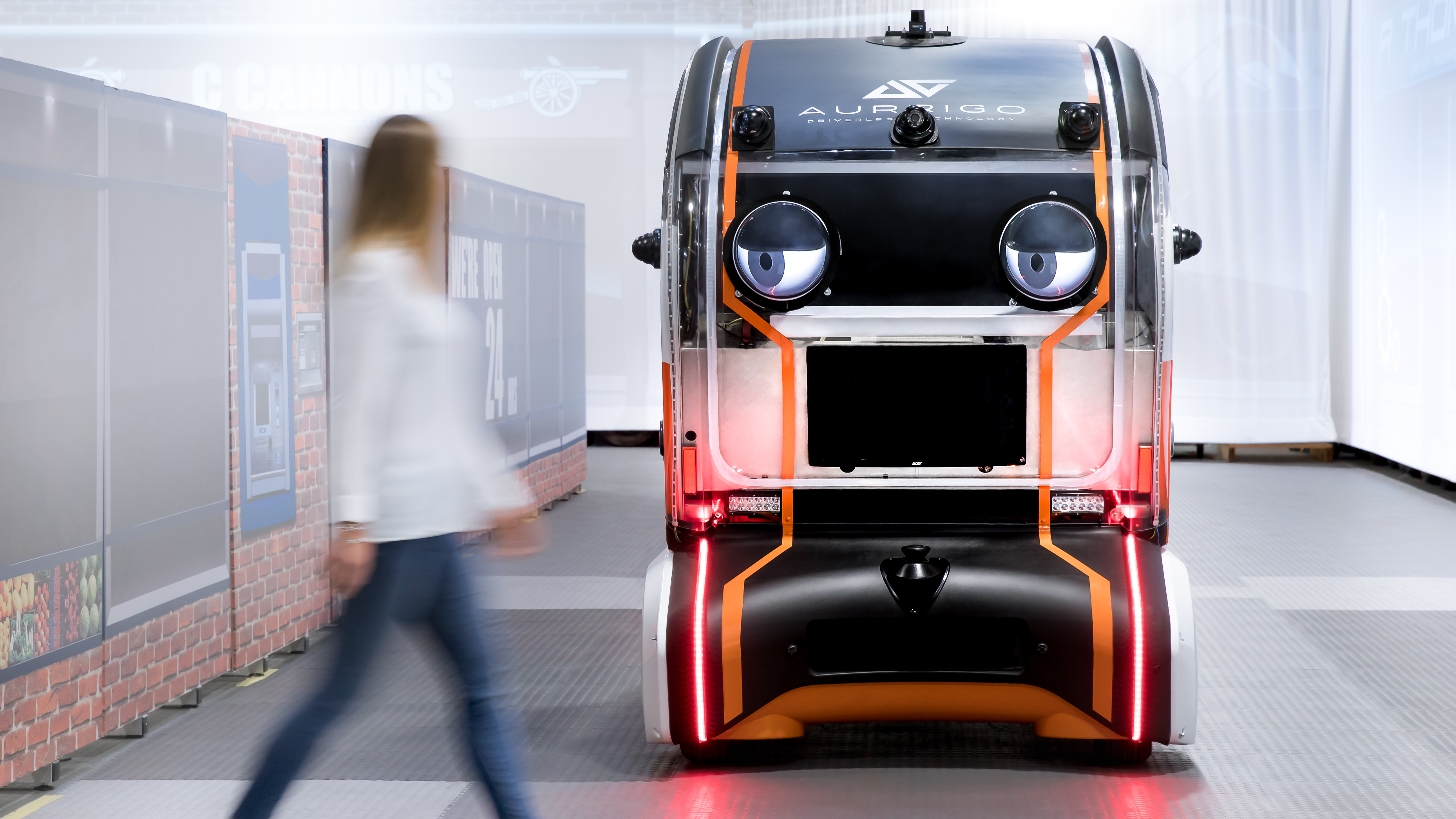Jaguar Land Rover gives self-driving cars googly eyes to put pedestrians at ease

Pedestrians and cyclists struggle to trust self-driving cars, but Jaguar Land Rover believes it may have a solution: 'virtual eyes' that stare at fellow road users, letting them know they've been seen.
Perception of safety is a serious issue for autonomous car makers, and according to Jaguar Land Rover's studies, as many as 63% of pedestrians worry that it won't be safe to cross roads when self-driving vehicles roam the streets.
As part of its UK Autodrive project, the company is working with cognitive psychologists to help understand how trust works in human beings, and find new ways for cars to share information with pedestrians.
Looks safe
The scientists analyze the behavior of people as they cross a simulated street populated with self-driving 'intelligent pods' designed by UK company Aurrigo. Each pod seeks out pedestrians, and makes 'eye contact' to let them know that they've been seen. Researchers measure people's trust level to find out whether the eyes give them enough confidence that the pods will stop for them.
"It’s second-nature to glance at the driver of the approaching vehicle before stepping into the road," said Pete Bennett, future mobility research manager at Jaguar Land Rover.
"Understanding how this translates in tomorrow’s more automated world is important. We want to know if it is beneficial to provide humans with information about a vehicle’s intentions or whether simply letting a pedestrian know it has been recognized is enough to improve confidence."
Sign up for breaking news, reviews, opinion, top tech deals, and more.

Cat is TechRadar's Homes Editor specializing in kitchen appliances and smart home technology. She's been a tech journalist for 15 years, having worked on print magazines including PC Plus and PC Format, and is a Speciality Coffee Association (SCA) certified barista. Whether you want to invest in some smart lights or pick up a new espresso machine, she's the right person to help.